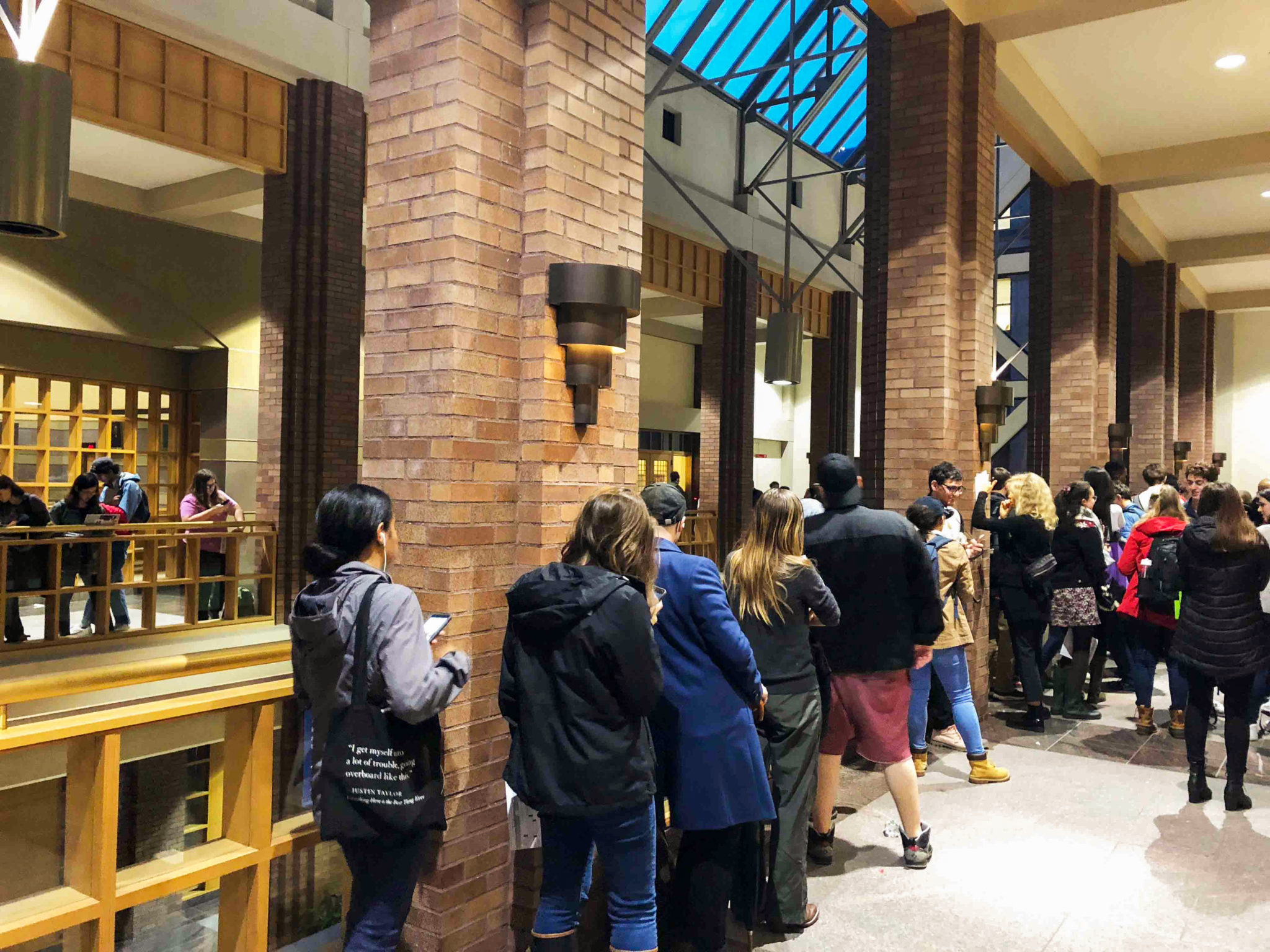
Aakshi Chaba
After many New Haven residents were turned away at the polls, facing long lines for same-day voter registration last year on Election Day, community members gathered at City Hall to voice their concerns and discuss the city’s voting challenges.
On Thursday, the Board of Alders’ City Services and Environmental Policy Committee held a hearing in hopes of streamlining future voting processes in light of the challenges hundreds of voters faced in the November 2018 elections. The alders heard from a representative from the state, who explained the overview of challenges in the last election, before accepting further testimony from members of the New Haven community.
“[The 2018 election] marked the second election in three years in which New Haven conspicuously failed its voters,” Aaron Goode, head of New Haven Votes, told the alders. “Restoring and maintaining the confidence of voters should be considered as fundamental a function of city government as fighting fires or picking up trash.”
By state mandate, eligible voters in Connecticut can register on Election Day and immediately vote in that election. Election Day voter registration, however, is a more complicated process than normal voting and traditionally takes more time. Last election, high turnout for same-day registration contributed to hourslong lines at City Hall, as residents — many of them Yale students — were told that they may not be able to cast their ballots for that election.
The voting challenge in New Haven, which was compounded by issues such as confusion over designated polling places and vote-counting machine malfunctions, has prompted officials — at the state and city level — to seek ways to avoid future chaos.
Kevin Arnold, the head moderator for New Haven Election Day registration, explained to the committee’s alders that the long lines on Election Day were caused by limitations in the state’s voting system. All individuals who use same-day registration must be processed into the system of Connecticut’s secretary of state to become valid electors, which then enables them to vote.
Entering individuals into the system requires qualified staffers from the state level. That requirement effectively slows or stopgaps the flow of people that can be processed. In New Haven, there were just two staffers. Additionally, even with adequate manpower, the system network itself has an upper limit. Each additional computer added to the system slows it down. Arnold said that when “10 or 12” staffers enter data into the system at the same time, the system essentially reaches its maximum processing ability.
Still, Arnold said high voter turnout in New Haven was anticipated. The state had told him to expect levels similar to the last presidential election, in which approximately 1,000 people attempted to use same-day registration to vote in the Elm City. Given that knowledge, Ward 7 Alder Abby Roth ’90 LAW ’94 questioned why New Haven had not been more heavily staffed to begin with.
Ultimately, the number of people who attempted to register on Election Day amounted to roughly 750. Arnold said that, even now, he “still” does not know the full extent of what contributed to the day’s chaos but pointed to the two-person staffing as a major reason for the hold up.
Exacerbating factors included the rain on Election Day — which led to wet ballots that the ballot machines were unable to read — and issues with Yale’s mail system, in which many students hoping to vote absentee did not receive their ballots in time and opted for same-day registration in New Haven, instead.
Voting poses more challenges in large cities than small towns, but some testifiers expressed frustration with the lack of sustained change from one election to another. In response, Ward 18 Alder Salvatore DeCola stressed that New Haven has only seen such failures on even-year elections — city elections are on odd years — but Ward 21 Steve Winter ’11 acknowledged that the issue was a “recurring problem.”
Testifiers almost uniformly advocated for the city to commit and work in cooperation with other relevant parties, such as local universities. Winter argued that when crafting solutions, the city needed to take into account that New Haven was undeniably “a college town.”
In his testimony, Yale College Democrats President Timothy White ’20 said that Election Day “was essentially a full-blown crisis.” The experience, for many students, was both a first introduction to voting and an “intense experience” that warranted a stronger response, according to White.
Ned Lamont SOM ’80 was elected Connecticut’s new governor at the November 2018 elections.
Angela Xiao | angela.xiao@yale.edu







